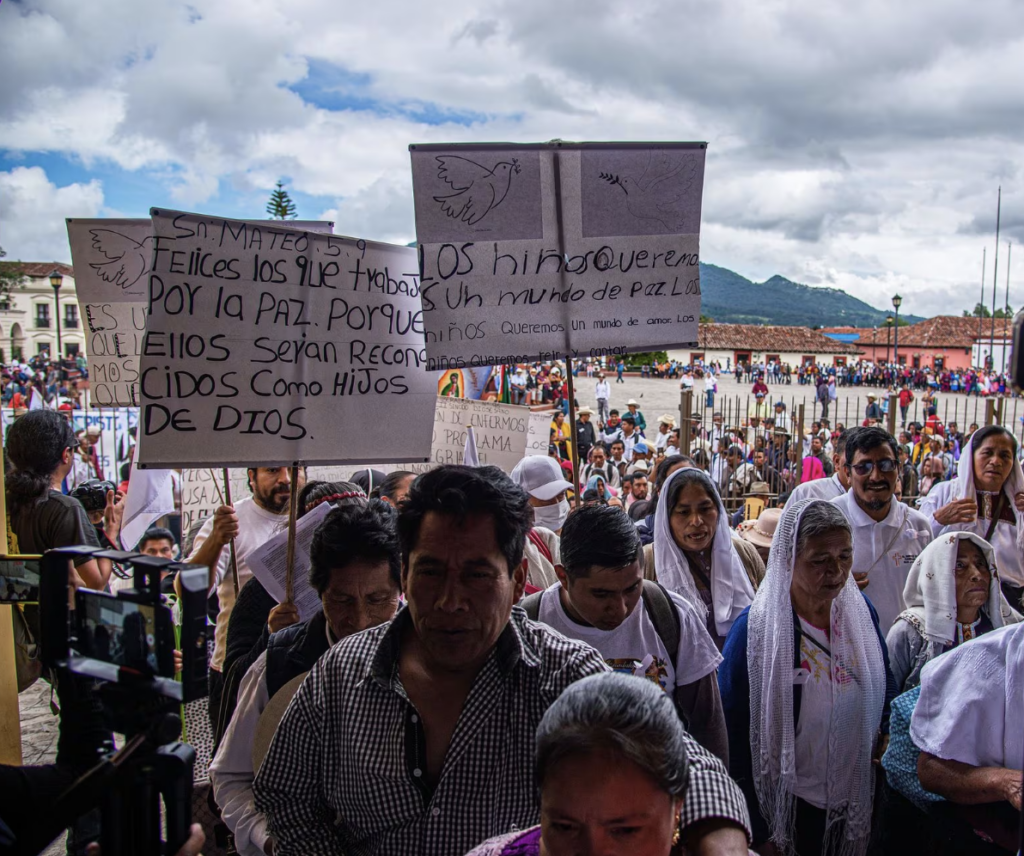
06/27/14 (written by akearns) — Controversy in Michoacán continues with the announcement this month of Governor Fausto Vallejo Figueroa’s resignation on June 18. Citing health issues, Vallejo (65) of the Institutional Revolutionary Party (Partido Revolucionario Institucional, PRI) has been suffering from ailments since 2008 and was forced to take of leave of absence during 2013, during which time former Secretary General José Jesús Reyna García served as interim governor. Reports indicate that Vallejo traveled to the United States for a medical exam before his announced resignation. He became governor of Michoacán in February 2012.
Despite support received from colleagues and well wishes as former Governor Vallejo recuperates, some in opposing political parties had questioned the governor’s ability to “effectively lead a state government” because of his declining health. Many also question whether his resignation is fueled by wanting to escape the continued controversial issues that have arisen during his tenure. “Two things have influenced the decision,” speculated Silvano Aureoles of the Party of the Democratic Revolution (Partido de la Revolución Democrática, PRD). “Without a doubt his health, which is understandable, natural, and at this stage in life is the most important. It is also influenced by leaked photographs [and] videos of a close family member of the governor.”
Aureoles’ reference is to the most recent allegations to surface of corrupt ties between politicians and/or their family and friends with the Michoacán-based criminal group, Knights Templar Organization (Caballeros Templarios, KTO). A video and photograph recently surfaced of what appeared to be a meeting and conversation between Vallejo’s son, Rodrigo, and the last remaining KTO leader, Servando “La Tuta” Gómez Martínez. As reported in Proceso and translated by Mexico Voices, “A military intelligence document states that Vallejo’s son Rodrigo belonged to the structure of both La Familia Michoacana and Los Caballeros Templarios, and that among his functions was collecting fees [for occupying commercial space: i.e., protection money], establishing contacts with politicians and business operations, and facilitating money laundering.” This allegation comes on the heels of charges brought against former interim Governor José Jesús Reyna García for suspected links to the KTO. After allegations broke, Reyna was removed from his post as Secretary General on April 6, held under arraigo while prosecutors built their case, and officially arrested on May 7. Around the same time that Reyna was detained, the mayor of Michoacán municipality Apatzingán was arrested on charges of extortion, allegedly receiving $20,000 pesos (around $1,500 USD) on a monthly basis from Apatzingán city councilmen to support the KTO. The former mayor of the Lázaro Cárdenas municipality, meanwhile, was also arrested for allegations of corrupt ties after a YouTube video surfaced showing him meeting with La Tuta. For his part, Governor Vallejo has denied all knowledge of his administration’s contact with the organized crime group.

In addition to the problem of corrupt ties between officials and the KTO, Governor Vallejo was also faced with the dramatic rise of citizen-based self-defense groups (grupos de autodefensa) during his tenure in office. In several parts of Mexico, though most notably in Michoacán, many citizens have expressed a lack of confidence in government forces, leading them to form their own community police forces for protection. These groups have been controversial because they not only initially lacked governmental oversight, but also because of the threat of such groups being vulnerable to infiltration by organized crime members. In April, for example, more than 110 suspected members of criminal organizations were arrested posing as members of self-defense groups. The self-defense groups’ nature has seemingly shifted, however, as they were incorporated in May into the Michoacán state security apparatus. By May 10, group members had agreed to either disarm or officially join the Rural Defense Corps and register their weapons.
Nevertheless, during his last meeting with his cabinet and other civil servants before stepping down, Governor Vallejo expressed the need for “civil servants to maintain unity, transparency, and reinforce efforts in Michoacán,” saying that before politics, government officials must remember the most important thing is the “health of Michoacán.” Since Vallejo completed more than two years as governor, new elections will not be held until his term is finished. However, Michoacán’s Congress has since voted in interim Governor Salvador Jara Guerrero to serve the remainder of Vallejo’s term. Jara wasted no time getting started, presenting his new cabinet, including new Interior Minister Jaime Darío Oseguera in place of Marco Vinicio Aguilera.
Sources:
“Michoacán’s former secretary general, interim governor arrested.” Justice in Mexico. May 14, 2014.
Rubí, M. et. al. “Fausto Vallejo deja gobierno de Michoacán.” El Economista. June 18, 2014.
“Las polémicas en torno a Fausto Vallejo.” El Informador. June 20, 2014.
Gil Olmos, José. “Vallejo: Un gobernador por el narco y para el narco.” Proceso. June 21, 2014.
“Mexico Drug War-Michoacán: A Governor By And For Organized Crime.” Mexico Voices. June 22, 2014.
Quadratín. “Gobernador de Michoacán presenta a su gabinete.” Milenio. June 26, 2014.




